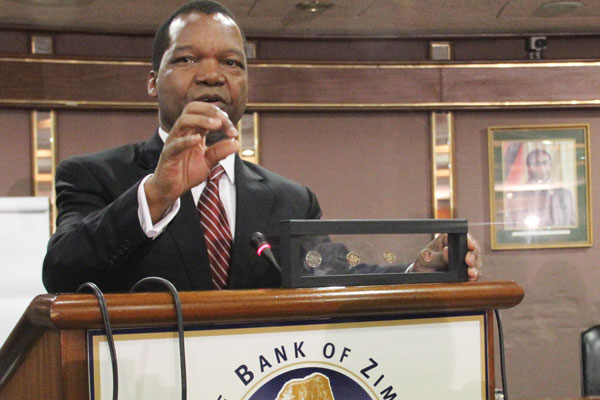
BY TAFADZWA MHLANGA/MISHMA CHAKANYUKA
A paltry $72 million out of the $150 million Treasury Bills (TBs) auctioned last week was subscribed, an apparent indication the market has no appetite for the sovereign paper.
This is the second time in two weeks that the Reserve Bank of Zimbabwe (RBZ) has experienced poor subscription of the TBs auction.
Recently, the central bank issued public auction of the sovereign paper to raise $300 million, but it managed to raise only $81 million which was below its targeted figure.
On Wednesday last week the central bank floated $150 million TBs and invited financial institutions including, commercial banks, building societies, POSB and Infrastructure Development Bank of Zimbabwe (IDBZ) to subscribe.
The offer which closed on Thursday had one year tenure.
The poor uptake might have been influenced by the need by financial organisations to cushion themselves from inflation risks and the interest rate currently prevailing in the country.
The TBs auction system resumed in August and the RBZ has floated five TBs with the last two auctions, which were open to financial institutions receiving low uptake.
- Chamisa under fire over US$120K donation
- Mavhunga puts DeMbare into Chibuku quarterfinals
- Pension funds bet on Cabora Bassa oilfields
- Councils defy govt fire tender directive
Keep Reading
Previous auctions which were carried out were oversubscribed with the first one raising $30 million and the second raising a $60 million, respectively.
Since government resumed public TBs auction two months ago, it aimed to raise ZWL$640 million from financial institutions to finance various activities.
This move has seen analysts advising the cash-strapped Treasury not to squeeze out financial institutions and unsustainably raise money supply.
The resumption of the public TBs auction has also brought questions on Treasury’s capacity to generate revenue through taxes.
The country’s economy is set to contract this year due to reduced output in agriculture, unreliable power supply, combined with inflationary pressures, foreign currency shortages and restricted external financial support.
According to Treasury, the stock of outstanding TBs as at June 2018 amounts to US$6,7 billion, with a maturity value of around US$8,3 billion.
Past auctions have been carried in privacy, and as such, government introduced an open market borrowing to advance transparency on its domestic debt.
A huge amount of TBs issued in the period 2017 to June 2018 had posed a burden to the fiscus in terms of both interest and principal expenses and in some instances it caused a state where the TBs were being reduced at absurd rates in the secondary market, hence depressing market confidence in government securities.
Through the Transitional Stabilisation Programme (TSP) unveiled last October, Treasury decided that all issuances of TBs and other public debt devices would be guided by tighter monitoring and management to guarantee consistency with the budget framework as agreed by Parliament, and that organised resources are directed towards infrastructure development.
Through the TSP, government vowed to issue medium to long-term securities only, in view of the narrow fiscal space, branded into those for liquidity support, infrastructure development and those for other commitments.
Government promised to issue medium to long-term securities only, in view of the narrow fiscal space, categorised into those for liquidity support, infrastructure development and those for other commitments.











